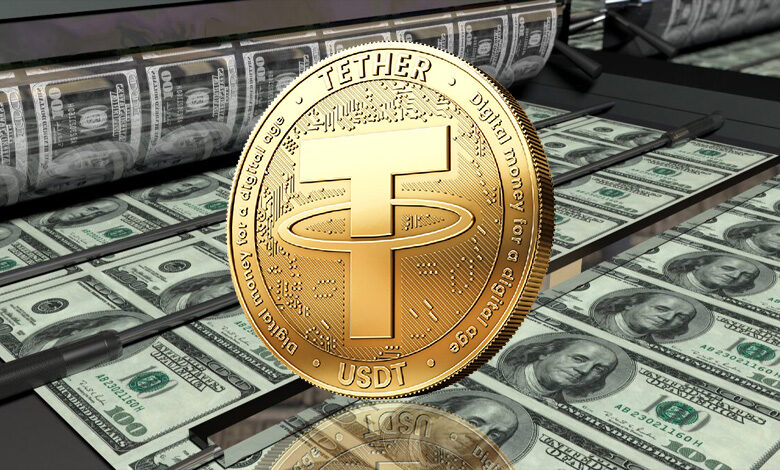What’s Backing USDT? Tether CEO Unveils Massive $100B in Reserves Amid Allegations

At the recent Plan ₿ Forum in Lugano, Switzerland, Tether’s CEO Paolo Ardoino took the stage to address the stability of the Tether USD (USDT) stablecoin, following allegations from a Wall Street Journal (WSJ) report that claimed Tether is under investigation by the U.S. Department of Justice and Treasury for possible anti-money laundering and sanctions violations.
Ardoino strongly denied these claims, presenting a detailed breakdown of Tether’s reserve assets in response to growing scrutiny. In fact, Ardoino assured the audience that Tether holds a solid backing of reserves, which he outlined as approximately $100 billion in U.S. Treasuries, 82,000 Bitcoin valued at about $5.5 billion, and 48 tons of gold.
These assets collectively support Tether’s market capitalization, which has now surpassed $120 billion, placing it significantly ahead of its closest competitor, USD Coin (USDC), which currently holds around $34.65 billion in assets.
A slide shared by a forum attendee, Uquid CEO Tran Hung, showcased Tether’s reserves, including $5.58 billion in Bitcoin and $3.87 billion in gold as of October 27.
Some audience members questioned whether these holdings fully covered USDT’s market backing, prompting Ardoino to clarify on social media that Tether’s reserves also include substantial holdings in U.S. government bonds.
It is worth noting that The WSJ article, published on October 25, stirred debate within the crypto community by alleging that anonymous sources revealed an ongoing investigation into Tether by U.S. authorities. In response, Ardoino dismissed the claims, calling them “old noise” and emphasized Tether’s proactive cooperation with law enforcement agencies worldwide.
“We deal regularly and directly with law enforcement officials to help prevent rogue nations, terrorists, and criminals from misusing USDT,” Ardoino stated. Since 2014, Tether claims to have assisted in recovering $109 million tied to fraud, sanctions evasion, and cybercrime. Ardoino criticized the article’s claims as “wildly irresponsible” and reaffirmed that Tether has not received any indication of an active investigation.
Ardoino’s statements at the forum also addressed broader concerns regarding U.S. regulatory policies, which he argued lag behind those of other countries, resulting in an exodus of innovative digital asset firms to more favorable jurisdictions. Despite these challenges, Ardoino expressed optimism that U.S. crypto regulations may see positive changes after the 2024 presidential election.
Tether’s growth in recent months, with USDT’s market cap reaching an all-time high of $120 billion, is seen by some as a bullish signal for the crypto market.
With Tether being a central player in the stablecoin industry, its stability and regulatory compliance remain under watch for the time being.





